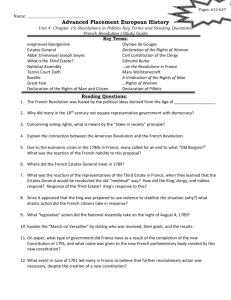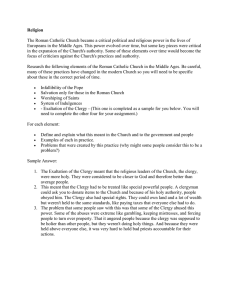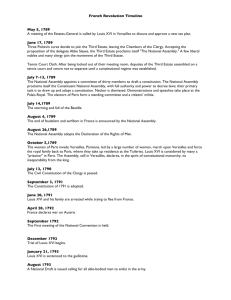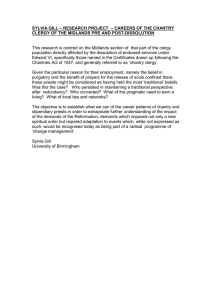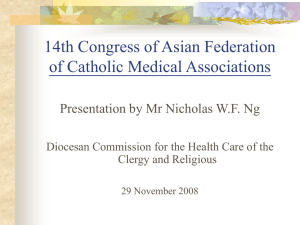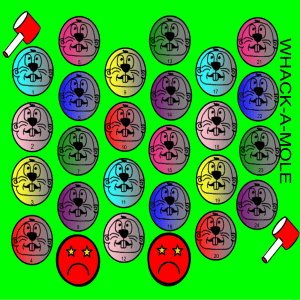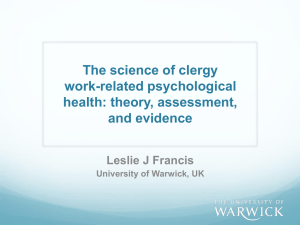The Reconstruction of France
advertisement
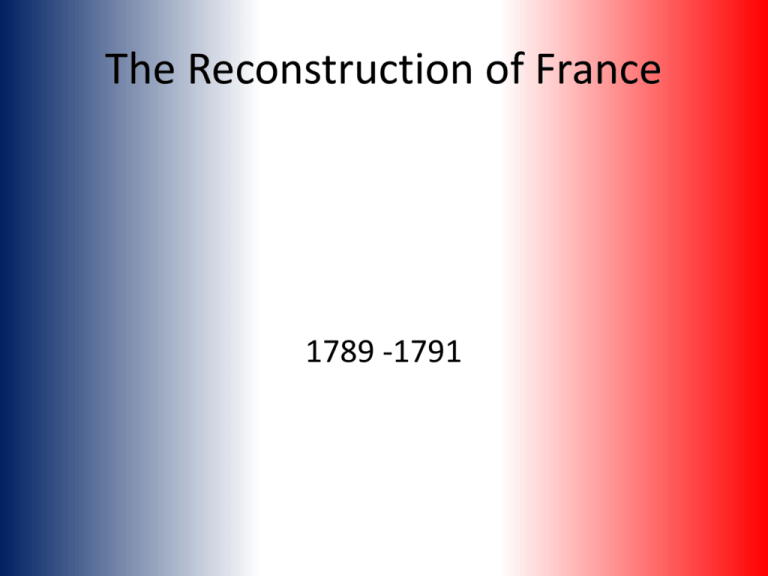
The Reconstruction of France 1789 -1791 • The beginning of the revolution was conservative in nature. • The nobles, clergy and bourgeoisie in the NCA wanted to protect property and legal equality. • They were wary of social equality and too much democracy. Political Changes • The Constitution of 1791 created a constitutional monarchy and unicameral Legislative Assembly • Only 50,000 (all male) out of 26 million were allowed to vote. • The French provinces were replaced with 83 departments. Courts were standardized and reformed. Economic Changes • The NCA suppressed guilds and the Chapelier Law forbid worker’s associations • deregulated the grain trade • Established the metric system • Peasants had to compensate landlords for feudal dues Religious Reforms • The debt was paid down by confiscating and selling church lands. • They used these sales to guarantee assignats, bonds that were used as money. Their value soon fell and caused inflation. • Freedom of religion was given to Christians and Jews Civil Constitution of the Clergy • Made the Catholic Church a branch of the state • Reduced bishoprics and organized dioceses around departments. • Priests and bishops now had to be elected Civil Constitution of the Clergy pt. 2 • Clergy were made to take and oath to support the constitution. Only ½ did and the other half was labeled refractory. • The pope condemned the CCC and the Declaration of the Rights of Man • Louis XVI also supported the refractory clergy Counterrevolutionary Activity • In the summer of 1791 Louis XVI tried to flee and was caught. • Leopold II of Austria issued the Declaration of Pillnitz
